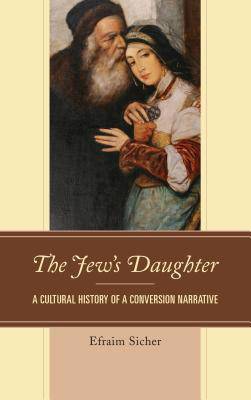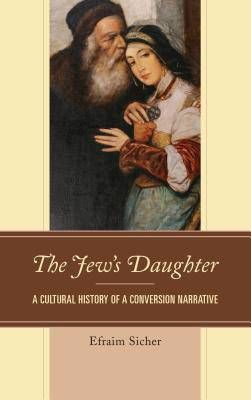
- Retrait gratuit dans votre magasin Club
- 7.000.000 titres dans notre catalogue
- Payer en toute sécurité
- Toujours un magasin près de chez vous
- Retrait gratuit dans votre magasin Club
- 7.000.0000 titres dans notre catalogue
- Payer en toute sécurité
- Toujours un magasin près de chez vous
242,95 €
+ 485 points
Format
Description
A new approach to thinking about the representation of the Other in Western society, The Jew's Daughter: A Cultural History of a Conversion Narrative offers an insight into the gendered difference of the Jew. Focusing on a popular narrative of "The Jew's Daughter," which has been overlooked in conventional studies of European anti-Semitism, this innovative study looks at canonical and neglected texts which have constructed racialized and sexualized images that persist today in the media and popular culture. The book goes back before Shylock and Jessica in TheMerchant of Venice and Isaac and Rebecca in Ivanhoe to seek the answers to why the Jewish father is always wicked and ugly, while his daughter is invariably desirable and open to conversion. The story unfolds in fascinating transformations, reflecting changing ideological and social discourses about gender, sexuality, religion, and nation that expose shifting perceptions of inclusion and exclusion of the Other. Unlike previous studies of the theme of the Jewess in separate literatures, Sicher provides a comparative perspective on the transnational circulation of texts in the historical context of the perception of both Jews and women as marginal or outcasts in society. The book draws on examples from the arts, history, literature, folklore, and theology to draw a complex picture of the dynamics of Jewish-Christian relations in England, France, Germany, and Eastern Europe from 1100 to 2017. In addition, the responses of Jewish authors illustrate a dialogue that has not always led to mutual understanding. This ground-breaking work will provoke questions about the history and present state of prejudiced attitudes in our society.
Spécifications
Parties prenantes
- Auteur(s) :
- Editeur:
Contenu
- Nombre de pages :
- 322
- Langue:
- Anglais
Caractéristiques
- EAN:
- 9781498527781
- Date de parution :
- 04-05-17
- Format:
- Livre relié
- Format numérique:
- Genaaid
- Dimensions :
- 155 mm x 231 mm
- Poids :
- 675 g

Les avis
Nous publions uniquement les avis qui respectent les conditions requises. Consultez nos conditions pour les avis.






